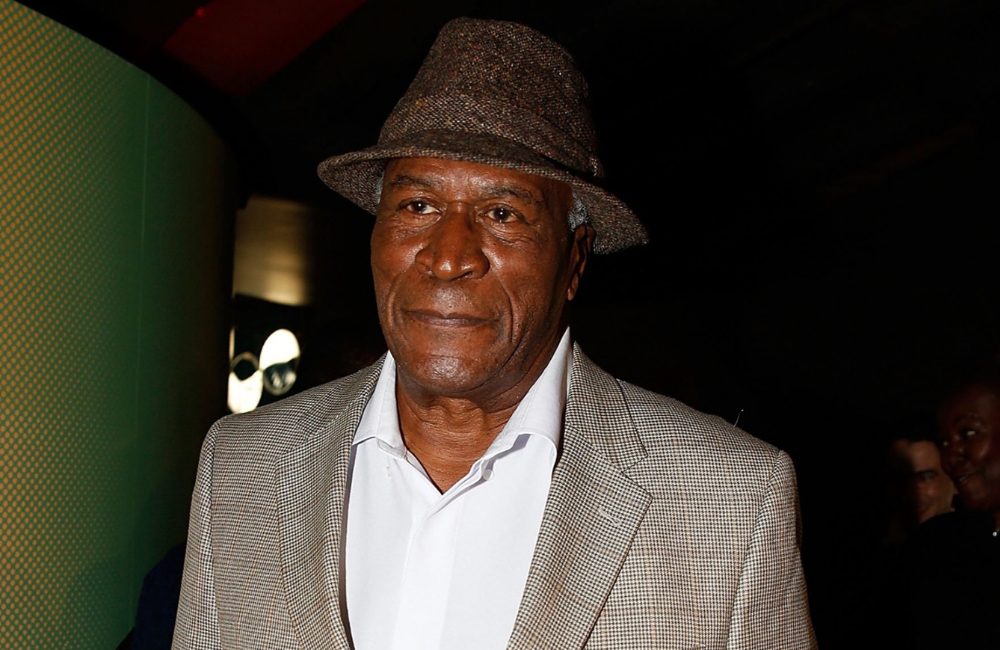John Amos, the Emmy-nominated actor and pioneering figure in television, died at 84. His son, K.C. Amos, confirmed that he died Aug. 21 in Los Angeles due to natural causes, a fact kept private for over a month. K.C. expressed profound sadness in sharing the news, highlighting his father’s kind heart and the love he received from fans who regarded him as their TV father.
Friends, family and fans mourn the loss of Amos, a legendary entertainer whose impact on television remains significant.
Amos’s career spanned over five decades, with his most iconic role being James Evans Sr. on the groundbreaking CBS sitcom “Good Times” (1974–1979). This show was notable for being the first sitcom centered on an African American family, and Amos’s portrayal of a hardworking father became a symbol of strength and dignity for many viewers.
Despite his success, Amos’s time on “Good Times” was cut short after three seasons due to creative differences with the producers. He famously objected to the portrayal of his on-screen son, J.J., played by Jimmie Walker, feeling that the character’s comedic antics overshadowed the more serious aspects of family life. Amos’s insistence on a balanced representation of Black families ultimately led to his departure from the show in 1976.
Born Dec. 27, 1939, in Newark, New Jersey, Amos initially pursued a career in football, playing at Colorado State University and briefly with teams like the Denver Broncos. However, after injuries curtailed his athletic aspirations, he transitioned to the entertainment industry, where he found his true calling.
Amos’s first major acting role came as Gordy Howard, the affable weatherman on “The Mary Tyler Moore Show” from 1970 to 1973. His talent shone through as he wrote and performed sketches on “The Leslie Uggams Show” and landed various roles in television series and films.
In 1977, Amos received an Emmy nomination for his portrayal of Kunta Kinte in the landmark miniseries “Roots.” This role solidified his status as a respected actor and contributed to the show’s cultural significance. “Roots” remains one of the most-watched television events in history, and Amos’s performance is celebrated as one of his most enduring achievements.
Beyond television, Amos made significant contributions to film, appearing in Melvin Van Peebles’ “Sweet Sweetback’s Baadasssss Song” (1971) and the comedy classic “Coming to America” (1988), where he played Cleo McDowell. He reprised this role in the sequel, “Coming to America 2” (2021), showcasing his lasting appeal in Hollywood.
Amos’s versatility extended beyond acting. He was a passionate writer and performer in theater, creating and touring with the one-person play “Halley’s Comet” for over 20 years. His involvement in Broadway productions, including Carl Reiner’s “Tough to Get Help,” further demonstrated his diverse talents.
Throughout his career, Amos remained committed to authentic portrayals of Black characters and families. His departure from “Good Times” exemplified his dedication to responsible representation, even at the cost of personal success. This commitment resonated with audiences and fellow actors alike, cementing his status as a role model in the industry.
Amos’s influence extended beyond his on-screen performances. He was a vocal advocate for diversity in Hollywood, often speaking out about the need for more nuanced and varied roles for Black actors. His perseverance in the face of industry challenges paved the way for future generations of performers.
In addition to his acting career, Amos was known for his philanthropic efforts. He supported various charitable causes, particularly those focused on education and opportunities for underprivileged youth. His dedication to giving back to the community further endeared him to fans and colleagues.
Despite facing personal challenges, including a public legal battle involving his children, Amos’s legacy as a beloved television father and a trailblazer for Black actors remains intact. He is survived by his children, K.C. and Shannon, from his first marriage.
Colleagues and fans have shared memories and tributes since the news of Amos’s passing became public. Many recall his professionalism on set, his willingness to mentor younger actors, and his unwavering commitment to his craft. His impact on the entertainment industry extends far beyond his impressive list of credits.
As the entertainment world reflects on Amos’s contributions, his work continues to inspire new generations of actors and creators. His performances in iconic shows like “Good Times” and “Roots” are still celebrated for their authenticity and emotional depth, serving as benchmarks for quality television.
John Amos’s impact on television and film is immeasurable. His dedication to portraying authentic Black family dynamics and his commitment to excellence in acting have left an indelible mark on the industry. As fans and colleagues remember him, his legacy will undoubtedly continue to inspire future generations of actors and audiences alike.




